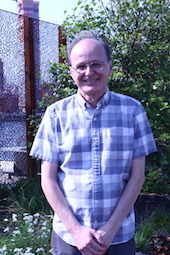Apply Now | The Deadline for NYFA Fiscal Sponsorship is September 30
The crisp air of fall is coming. Turn a new leaf and jump-start your projects with NYFA Fiscal Sponsorship!
NYFA Fiscal Sponsorship expands the fundraising capacity of individual artist projects and emerging arts organizations by allowing them to utilize NYFA’s 501c3 tax-exempt status. To be eligible, a project or organization must include a public benefit component. By providing individual and corporate donors with the incentive of a tax-deduction, and by enabling access to an array of grants reserved for organizations with 501c3 status, fiscal sponsorship can optimize your fundraising reach.
Please note that fiscal sponsorship is not a grantmaking program. We encourage you to carefully review the FAQ section of the website. To see a list of our currently Fiscally Sponsored projects, check out our Directory.
Apply Now!
An application is required for participating in the program and the next NO-FEE application deadline is September 30.
Are you an artist/collective project? Apply here.
Are you an emerging organization? Apply here.
Organizations must be incorporated as a non-profit at the state level.
Benefit from Unlimited Staff Support
A core component of the NYFA Fiscal Sponsorship program is unlimited free access to an experienced and specialized staff of experts. From strategizing fundraising, evaluating project management and budgeting, to reviewing letters of inquiry and grant proposals, our team is dedicated to helping you reach your project’s fundraising goals. Get an insider’s peek into NYFA’s trove of expertise and gain insights from the world of film funding with Fiscal Sponsorship’s Media Specialist, Matthew Seig.
NYFA: What are three things every filmmaker should be doing to share their film with an audience?
Matthew Seig: First, define your core audience and find ways to reach them. Even if you think your audience is “everyone,” decide who the people are that will be excited to be the first to see your film, and who among them have influence with others.
Secondly, instead of thinking in terms of your audience seeking out your film at a theater or festival, think about ways to reach them directly in their communities.
Third, make it easy for your audience to learn about you and your film, and to contact you. Collect email addresses on your website, and once in awhile send out news of what you are doing and where your films are showing. Treat your audience well, and show them your appreciation.
NYFA: How has film funding changed in recent years?
MS: The last significant development in film funding was the introduction of crowdfunding about eight years ago. Lately some crowdfunders have been tightening their belts and leaving the business or scaling back. But crowdfunding was quickly established as an important part of a fundraising plan.
There has also been an increase in funders who specifically focus on film as a tool for social change, with some look at a filmmaker’s ability to make an impact and guide audiences to take action. Some funders have become sophisticated in their understanding on how filmmakers can participate in the distribution process and get their film seen, and some provide useful programs for strengthening these skills.
NYFA: What is the power of documentary film in our modern day, hyperspeed tech world? What do you envision the future of filmmaking being like in the next 20 years?
MS: I’m not sure that a good documentary is any more powerful than a good film of any other kind, but documentaries have certainly gained popularity and respect over the years. This is widely considered to be a golden age of documentary filmmaking.
Film, over the years, has become more accessible and democratic. There is just a lot more competition. This is a field where the supply is greater than the demand, a few people make most of the money, where the risk is high but the pay often isn’t, and where many people survive with day jobs.
Going back to how funding is changing, the technological and social evolution in filmmaking can pose challenges for funders as well and may change the way they think. For example, many funders speak of wanting to create lasting partnerships with filmmakers. Now they are receiving grant applications from social activists who are making one film they deeply believe in, or artists from other disciplines who are making one film. These new filmmakers may be capable and their films may be significant and fundable, but they are not interested in traditional careers as filmmakers.

Matthew Seig is a Media Specialist at New York Foundation for the Arts. He brings his experience as a producer or director of over twelve films, both documentary and narrative, as well as film programming for community, festival and theatrical exhibition. He is Executive Director of the Rivertown Film Society in Nyack, New York, and he represents the copyrights for the work of producer/director Robert Altman. In 2015, he edited a book about Altman’s life and films, Altman, published by Abrams Books.
Curious if NYFA Fiscal Sponsorship might be a good fit for your project? Check out the NYFA Fiscal Sponsorship FAQ page. Our team also loves to hear from you. Feel free to email [email protected] with questions.
Images, from top: detail, Jan Arnow, Innovations in Peacemaking (Sponsored Project); Matthew Seig, photo by Amy Aronoff





